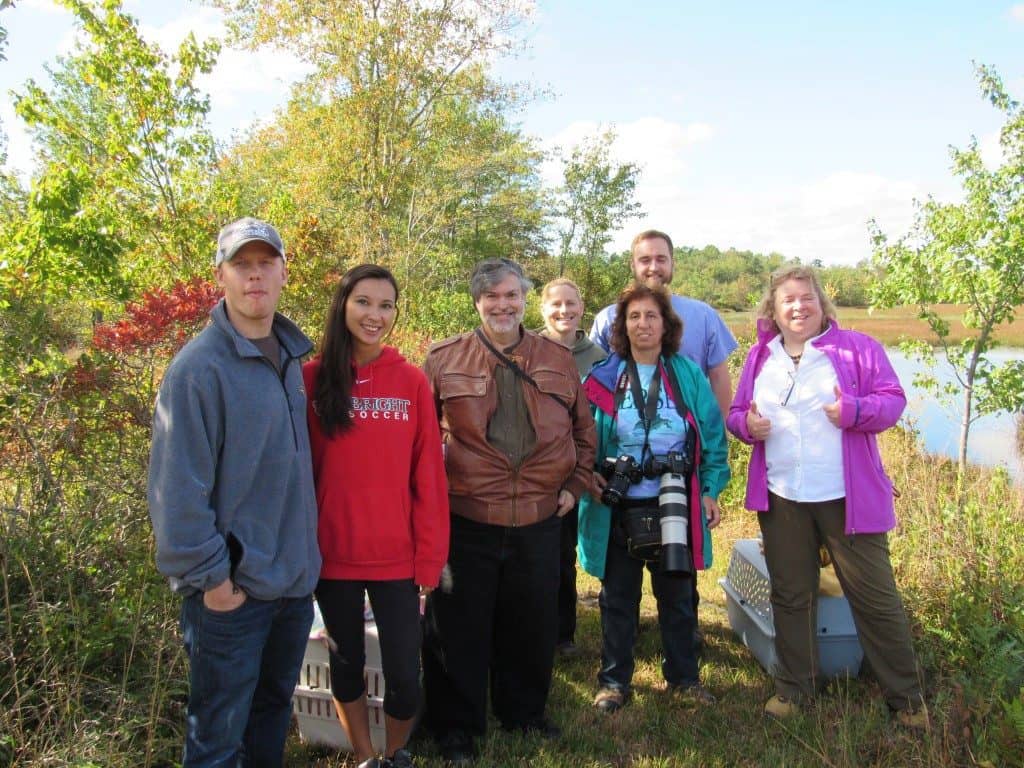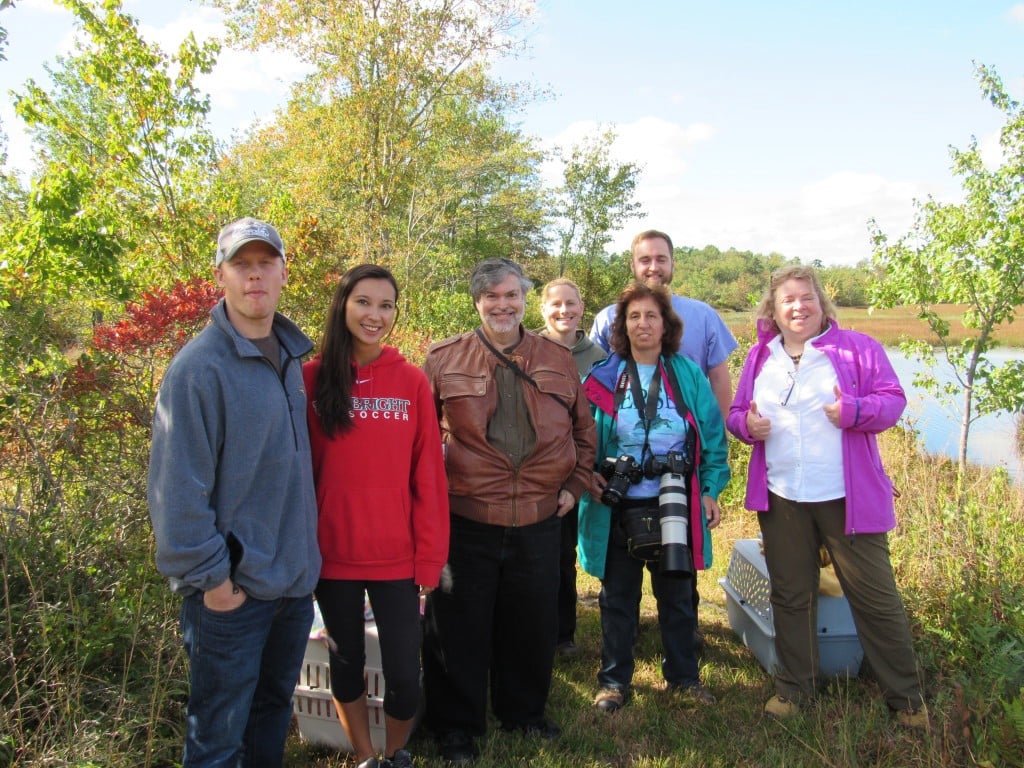

Back in June, a male resident of the Haddonfield area, who wished to remain anonymous, was in his backyard when he stumbled upon two young foxes caught in his backyard soccer net. Utilizing his local resources, the man took the foxes, still in the net, to the Woodford Cedar Run Wildlife Refuge, founded in 1957 by Jim and Betty Woodford, where the animals were taken in and assessed.
“The kits were still tangled in the netting when they arrived at Cedar Run on Tuesday, June 7, as the homeowner did not want to do any extra harm or handle too much before bringing them to our facility,” Lori Swanson, the director of wildlife rehabilitation at the refuge, said. “We had been hoping to remove the netting and release them back with the fox family, but the condition of the kits was too dire.”
Upon evaluation, the two fox were determined to be extremely dehydrated and the male had a terrible gash on one of his front legs — so damaged the refuge’s staff was unable to stitch it immediately. However, the organization was determined to help these animals and sought out vets from Animal and Bird Health Care Centers to perform a secondary closure after the wound had healed a little on its own.
In continuing the animal’s rehabilitation process, both fox were placed on pain medication to help them deal with inflammation from being bound-up for a long period of time. During their stay at the refuge, Swanson commented that the trickiest part of dealing with the kits was finding ways to keep them from chewing at their bandages.
“We are pretty sure his sister was his partner in crime the whole way through treatment. However, it was important to keep them together to reduce stress and to keep the babies as wild as possible,” Swanson said. “After some trial and error, we found a way to keep the bandage on, and he recovered beautifully.”
After months of rehabbing, being moved to an outdoor enclosure and handled as little as possible, the animals were able to successfully hone their skills for survival in the wild. A proper habitat location was selected for the kits before release, seeing as it is important to release animals into an area that is not overpopulated and provides sufficient food and shelter.
Then, on Thursday, Oct. 6., the fox were finally ready to be released, and to witness the exciting moment, refuge staff were joined by two couples who had won the opportunity to participate by bidding in two auctions. These couples included Bob and Janey Markman from Caldwell, who had bid on the opportunity at an auction to benefit EarthShareNJ, and Mike Southwick and Ali Brett, who bid on the opportunity at Cedar Run’s annual “Whiskey, Wine and Wildlife” benefit.
When the cages containing the fox were open, the female took off immediately, while the male fox hesitated but eventually chased after his sister onto private land near the Wharton State Forest. Clearly ready to take on the Pinelands and old cranberry bogs, the release was truly rewarding for the refuge’s staff members after months of their hard work.
“We are grateful to the homeowner for safely getting the fox kits to our hospital. If left where they were, they surely would not have survived. Cedar Run hospital staff worked for months to provide the medical care, whether it was daily treatments or visits to Animal and Bird Health Care Center, food, housing and training to get these foxes ready for release,” Swanson said. “It takes many dedicated staff, interns and volunteers to help our wild patients get to the point of release.”
A great community resource, the Woodford Cedar Run Wildlife Refuge deals with many cases similar to the tale of the two fox on a regular basis. Multiple times a year, on its 171 wooded acres surrounding Cedar Run Lake, the refuge receives animals that have been trapped in netting, especially soccer netting. Most of the time these animals are raptors, such as Great horned owls or Red-tailed hawks.
More than 4,500 animals are brought to the Wildlife Rehabilitation Hospital every year, and it is not funded in anyway by tax dollars and instead fully relies on donations. Only about 50 percent of those who bring wildlife to the hospital make a donation, but if every person who brought an animal in donated $65, the hospital would be fully funded. As of now, the hospital operates in a deficit of about $90,000.
If wild animals are found trapped in netting or in need of assistance in any other way, it is highly encouraged residents call the wildlife hospital to get advice on what to do and proper handling techniques. This is important not only for resident safety, but for the animal’s safety as well. For more information or to make a donation, visit Cedar Run’s website at www.cedarrun.org or contact the Nature Center at (856) 983–3329, ext. 100.









